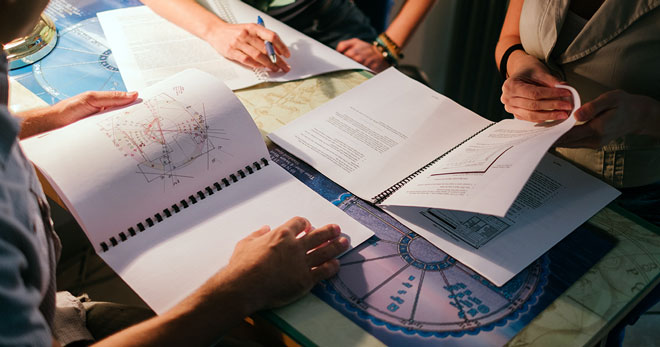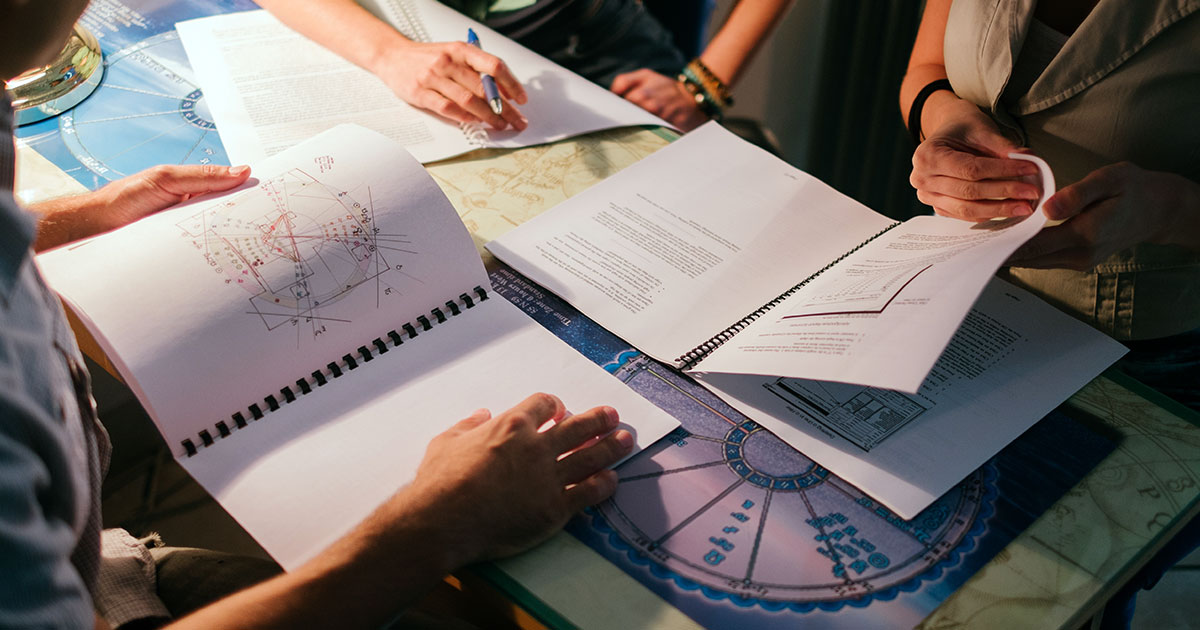
Episode 124 of the podcast features a discussion about different options for getting a well-rounded education in astrology, and the pros and cons associated with the four major educational paths that a student can take if they want to study astrology within the context of a school or certification program.
The episode was prompted by some questions Chris received from a student of astrology named Amaya Rourke, who was looking for some advice about the best path to take in terms of some of the different educational programs that are available.
This episode is a recording of what was essentially a pretty candid discussion between Chris and Amaya about some of the different options that are available to students of astrology today.
Below you will find the show notes with an outline of some of the points we touched on in the discussion, followed by links to download or stream the recording of this episode of the podcast at the bottom of the page.
Questions About Astrological Education
Here are some of the questions that Amaya had that we touched on at different points in the episode:
- What method would you recommend for someone to decide if a formal astrology program was right for them?
- Are online courses an equal alternative to taking a formal astrology program in person? Why or why not?
- Do you believe the money spent on attending a formal astrology program pays off for the student of astrology?
- What are the benefits to taking a formal astrology program?
- Is it necessary to attend a formal astrology program, in order to become an effective professional astrologer? If not, what do you think IS necessary?
- What would you consider to be the top 3 astrology programs a student could take right now? Why do you consider these the best?
- Would you consider a student finding a direct astrological mentor to be as valuable/on par with taking a formal astrology course?
- What is the difference between the major organizations (AFA, ISAR, and NCGR)?
- What is the difference between being a member of one of these organizations, and being certified by one of these organizations?
- What are the benefits of becoming members?
- What are the benefits of receiving astrology certifications from these organizations?
Transcript
A full transcript of this episode is available: Episode 124 transcript
Listen to This Episode
You can either play this episode of the podcast directly from the website or download it as an MP3 to your computer by using the buttons below:
Podcast: Play in new window | Download (Duration: 2:07:33 — 58.8MB)
